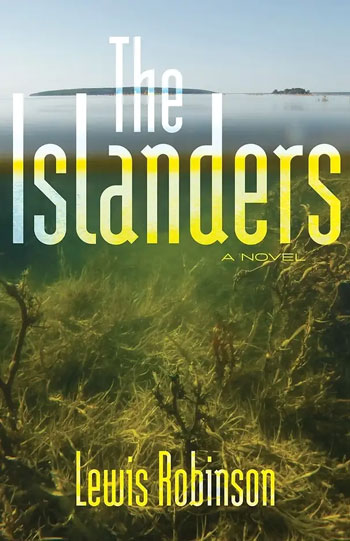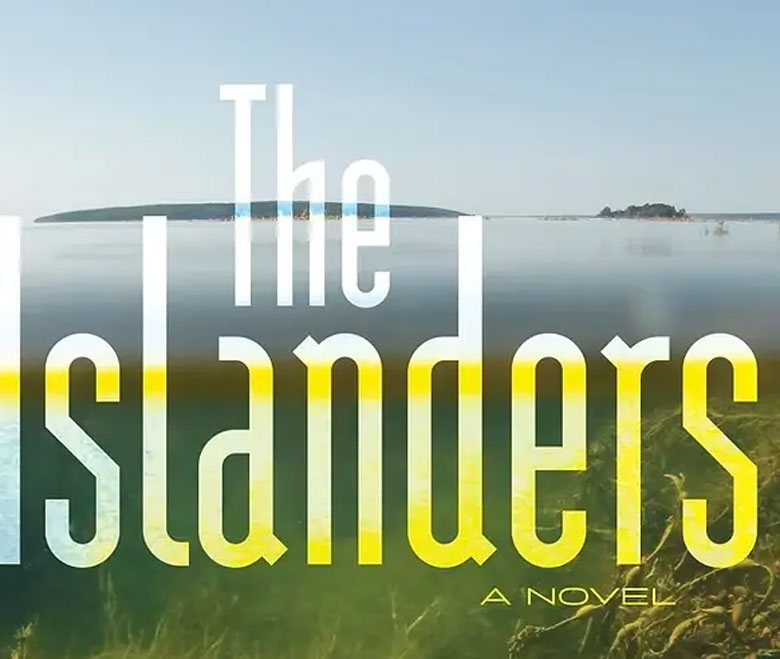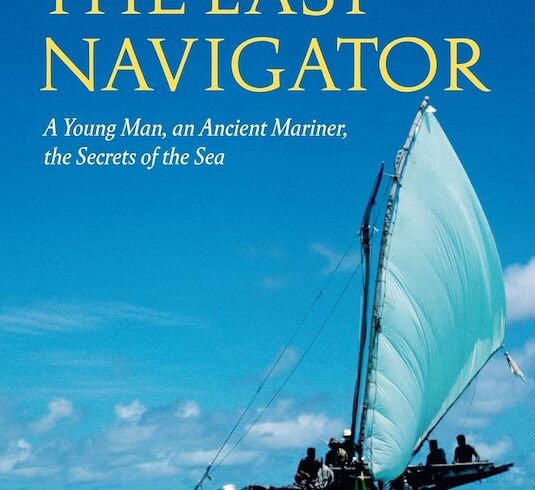The Islanders: A Novel
By Lewis Robinson; Islandport Press (2024)
Whaleback Island, the main setting of Lewis Robinson’s novel The Islanders, is one of those coastal places that just a small percentage of all the potential readers of this review might have set foot on. Everyone else sees it only from a distance.
On the 2,000-acre fictional island are tennis courts, a golf course, a private airport, boat houses for private boats, well-groomed hiking and biking trails. Getaway mansions. A clubhouse where social functions are held for expensively dressed people. There is also an armory.
The story is told by Walt McNamara, a teenager whose lower-middle class life in New Hampshire went sideways during his senior year in high school, and who, through the twists and turns of his story, eventually got invited to this island to do … he’s not quite sure what. But he’s been assured it is a great life opportunity not to be missed by a young man of his talents.
As the story opens, Walt has arrived at the mainland dock with instructions to row across open water to Whaleback with two new companions, Tess and Aubrey. It’s a pretty healthy distance across the water, and the three teenagers wonder if there isn’t something amiss about sending three kids with no seagoing experience in a rowboat to get to a place they’ve never been before.
The reader joins in the uneasiness.
Tess is revealed immediately to be a master of skeptical irony, Aubrey does not speak, and Walt is flustered, confused, and youthfully stoic.
After arriving safely on the island, they discover about 50 other teenagers like themselves who have also been invited. The kids are divided into six groups called “huddles,” each under the supervision of an adult charged with whipping the kids into physical and emotional shape. Again, to what end, the kids don’t know.
A sense that something insidious is going on develops slowly but surely among the kids and the reader.
At first the whole enterprise appears to be an Outward Bound-style boot camp for disaffected youth. The kids form friendships, bonds, and skepticism quickly.
Some of the huddle supervisors seem nicer than others, but Walt, Tess, and Aubrey’s leader, an ex-military man named Grunewald, is drill-sergeant harsh. Day in and day out, he contrives difficult, sometimes dangerous exercises for the kids, and makes gruff speeches about how they are finally facing reality after living innocent, sheltered lives. Even though the situations, though dangerous, are themselves artificial.
A sense that something insidious is going on develops slowly but surely among the kids and the reader. The island’s overseers, a clique of wealthy men, hold meetings in which they perform unctuous exhortations to the kids to take advantage of the special, but unspecified opportunity afforded by the island program.

The insinuation that the kids may be in line to become elitely wealthy is less well disguised than the hints of a used car salesman.
So the questions driving the plot are: What are the kids doing there? Is Grunewald an enemy or a friend? Are the island overseers benefactors or manipulators? Either way, to what purpose?
In the meantime, chapters telling the story of Walt’s troubles at home intersperse with chapters about the island. Walt, a star hockey player, has been roiled by his father (the school janitor) and mother’s split. He is nastily manipulated by an unlikely girlfriend from a well-to-do family. Under the stress, Walt cracks, leading to his invitation to the compound on Whaleback.
Walt’s experience brings into high relief the fundamental themes of the book. They involve the relative innocence of teenagers and the multifarious corruptions of adults; tensions between people of wealth and people of limited social and economic means; misguided and shallow interpretations of seminal American social philosophies; and the ugly corruption inherent in the love of money.
The Islanders really is what we call a “timely” novel. It’s an all too realistic, carefully crafted parable whose ironies strike uncomfortably close. It’s about how literal class wars are taking shape in America right now. A thoughtful, uncomfortable, socially penetrating read.
Dana Wilde is a former college professor and newspaper editor who lives in Troy. His books include A Backyard Book of Spiders in Maine, Winter, Summer to Fall, Nebulae, and The Other End of the Driveway.





